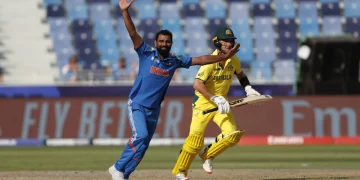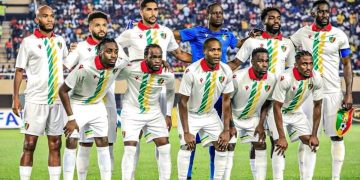The 2024 CAF Awards held in Marrakech, Morocco, on December 16, celebrated the continent’s top football talents, with Ademola Lookman being crowned African Footballer of the Year.
But beyond the glitz and glamour of the ceremony, this year’s awards prompt a deeper examination of the evolving landscape of African football and its implications for players and nations alike.
Lookman’s Rise: A New Era for Nigerian Football?
Ademola Lookman’s ascent to the pinnacle of African football comes almost three years after he switched his international allegiance from England to Nigeria.
His impressive performance for Atalanta, where he helped the team secure the Europa League, alongside his contributions to the Nigerian national team, underscores a significant shift in talent representation.
Lookman’s victory marks a continuation of Nigeria’s strong presence in African football, following compatriot Victor Osimhen’s win in 2023.
This back-to-back achievement highlights Nigeria’s growing dominance in the sport, reminiscent of the era when legends like Nwankwo Kanu and Victor Ikpeba were honoured consecutively in the late 1990s.
Is this a sign that Nigerian football is reclaiming its status as a powerhouse on the continent?
The Gender Gap: Women’s Football on the Rise
Alongside Lookman, Barbra Banda from Zambia was awarded Women’s Player of the Year, further emphasizing the progress being made in women’s football across Africa.
Banda’s recognition reflects a growing acknowledgment of female athletes who have historically been overshadowed by their male counterparts.
However, while these accolades are commendable, they also raise questions about the ongoing disparities in support and resources for women’s football compared to men’s.
As more female players gain international recognition, will this lead to increased investment and infrastructure development for women’s teams across Africa?
Goalkeepers Steal the Spotlight
South African goalkeeper Ronwen Williams was another standout at the awards, winning both Men’s Goalkeeper of the Year and Men’s Interclub Player of the Year for his stellar performances with Mamelodi Sundowns.
His achievements highlight how crucial goalkeeping has become in defining match outcomes at both club and national levels.
Yet, controversy brewed when Williams was notably absent from the Team of the Year despite his accolades.
This raises concerns about how selections are made and whether biases exist within award committees that could overlook deserving players based on factors beyond performance.
The Future of African Football: What Lies Ahead?
As we celebrate these achievements, it is essential to consider what they mean for the future of African football.
The CAF Awards serve not only as a recognition platform but also as an opportunity to reflect on broader issues such as player welfare, financial support for clubs, and grassroots development.
With Lookman hinting at potential moves back to the Premier League amid speculation about his future at Atalanta, it begs the question: will African players continue to seek opportunities abroad at the expense of local leagues?
As more talents emerge from Africa, how can local leagues retain their stars while fostering new talent?
A Call for Unity and Growth
The 2024 CAF Awards have showcased remarkable talent and highlighted significant progress within African football.
However, they also present an opportunity for introspection regarding gender equality, player representation, and support for local leagues.
As stakeholders in African football—from players to administrators—continue to navigate these challenges, unity and collaboration will be key to ensuring that all athletes receive the recognition and support they deserve.
The future of African football looks promising, but it requires collective effort to build on this momentum and address existing disparities.













